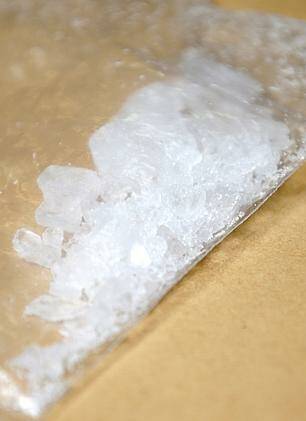
There’s a mother in Young whose son is addicted to ice and she has no idea how to deal with it.
Subscribe now for unlimited access.
$0/
(min cost $0)
or signup to continue reading
She’s well do to, articulate, has a job, a family, dresses impeccably and if you spoke to her there’s no indication of what she’s dealing with daily.
“Do you know how I live - I live waiting for that phone call,” she says.
That phone call means her son would be dead.
She wants people in Young to know that ice - a high purity crystalline form of methamphetamine - is in this town being consumed at every level of society.
“If you think it’s not there - it’s right there. It is in every nook and cranny. People would be blown away if they knew,” she said.
And, she warns, we are in no way prepared. Not as individuals, as families, nor as a community.
For the past three years, completely unequipped, she has been grappling with a boy who has transitioned from softer drugs - like marijuana - to ice and seen her son and family almost completely destroyed.
“I knew something was up - he just started behaving erratically,” she said, describing the highs as seemingly euphoric glee and the “coming down” as one of the scariest things she has ever encountered.
Paranoia is a common side effect of ice, as is hostility and violence.
“I’m on a first name basis with the police who have to come and deal with a teenager rampaging through my house smashing things up - it’s sheer chaos,” she says.
“We lived in constant fear - not knowing when the next episode would happen.”
The house she likens to a warzone peppered with holes in walls.
Despite a litany of AVOs she finally had to tell the teen to leave and not come back.
“How do you, as a mother, not want your son to live in your house? But our lives have been at risk a multitude of times,” she said.
The few times she has seen him lately usually involves trips to the chemist where hundreds of dollars are spent on skin washes and lotions to treat the uncontrollable red, dry, itchy, crawling skin which can become so bad they will often itch until their skin is broken and blood is drawn.
“He’s at the stage where he loves the drug more than anything - he’s selling on the streets, lives from couch to couch, goes to the pub, spends all his money and then he’s out selling and using again.
He has asked for help. But help usually means a talking to a rehab centre, who ask for him to detox first, detoxing means a doctor’s referral - if they can last the wait in the doctor’s surgery.
“When we’re sitting in the waiting room because he is coming down he is like a caged animal - I can suggest he goes to sit outside and have a cigarette but more often than not we just have to go home because he is getting increasingly agitated,” she said.
That’s three days of phone calls and appointments down the gurgler. And there’s no guarantee of placement into a rehab centre, most of which have six week waiting lists.
“What is needed is a place for these addicts to go immediately, without delay, while they’re in the frame of mind to get help - they can’t wait,” she said.
And there is no place to wait if six weeks means placing him in a home with other younger children.
“Most of the agencies have places to put these people and restrain them - police can put handcuffs on them, lock them up but what do I do with a young man who is going ballistic?” she asked.
“The government needs to open its eyes and look at the problem and do something about it now - come up with more immediate solutions, provide more facilities to offer treatment earlier on - there are not lots of places out there,” she said.
She’s also seeking a strategic response for communities and individuals seeking help.
“Like I said - this is affecting every echelon of society and I am one of those people grappling with an endless cycle and I don’t know how to break it - I haven’t got the tools - there’s not even an ad to tell me this help is here right now,” she said.
“We need safe places to put people so they can calm down - a place where if he wanted to run three days on one direction and then run three more - that’s the sort of place we need - a place that will hold him.”.
She’s loathe to offer advice to other parents.
“What advice can I give anyone? I can’t even help my own son - I can’t say it’s going to be better because it’s not - there’s not one piece of advice I can give when I know my son is lost somewhere and likely to turn up dead,” she said.
“But as a community we need to have something in place right here to help because the way I have been living for the past three years is also somebody else’s hell and it will be a community hell unless action is taken,” she said.
* The mother in this story requested to remain anonymous.

